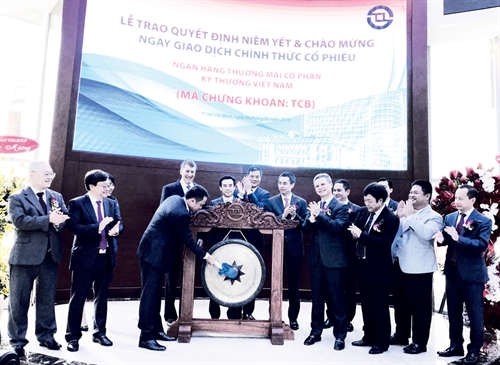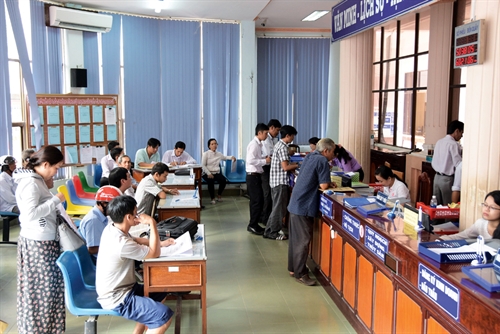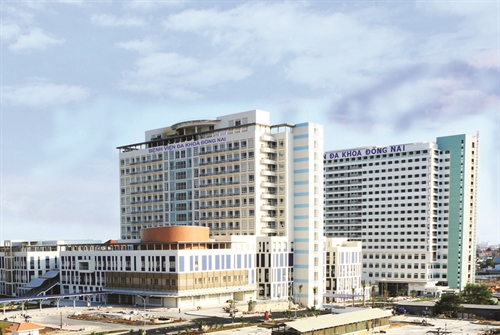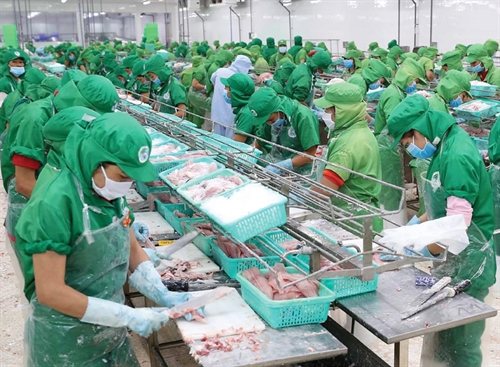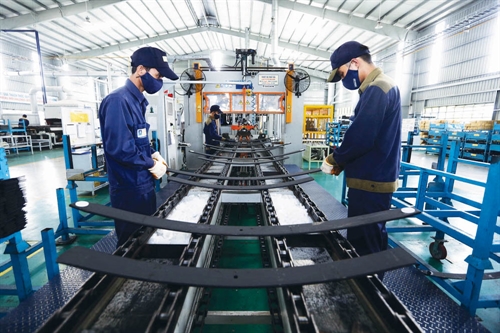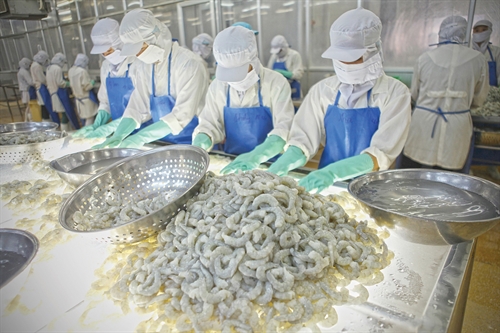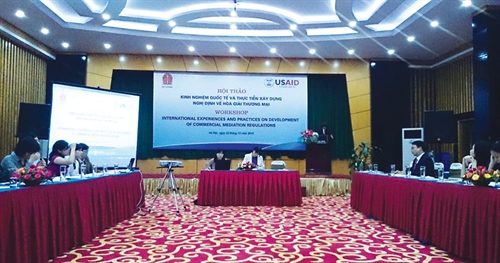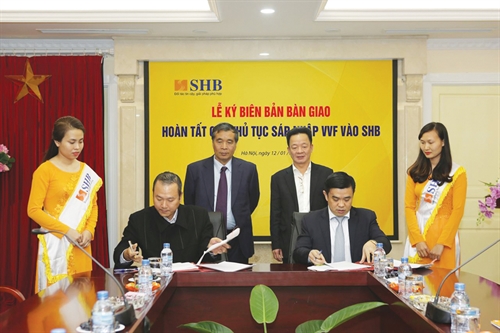The first half of 2018 saw great efforts of the Vietnamese Government in realizing its commitments to building market economy institutions in the country, especially removing legal hurdles for businesses. There have emerged some positive, significant “institutional reform” trends which are highlighted below.
Reforming investment and business conditions - the road to remove barriers to market entry
In the first half of 2018, the Ministry of Industry and Trade issued Decree 87/2018/ND-CP on gas business to replace Decree 19/2016/ND-CP. The new decree has removed the business conditions on the number of gas cylinders and tank capacity.
As soon as it was released, Decree 19 met with objections from some gas companies for they would have to buy tens of thousands of gas cylinders. With the price of VND 500,000 a cylinder, the additional cost that each enterprise will incur would be from VND 10-40 billion. But because the local demand is not so great, the number of additionally bought cylinders would be left in the warehouse. Similar waste would also occur to the 300m3 tank requirement. Not only waste, this regulation could also cause many normally operating enterprises to suddenly fall bankrupt or to sell their assets to larger businesses for only a fraction of the capital that was originally invested.
Similar to Decree 19, Decree 109/2010/ND-CP on rice export also has many business conditions that require a business scale beyond the necessary level such as: rice export enterprises must have warehouses of at least 5,000 tons of rice and rice husking facilities with a capacity of at least 10 tons of paddy per hour. These conditions directly hamper the market entry of small businesses while the management objective is unclear.
On August 15, the Government issued Decree 107 on rice export to replace Decree 109 above. The new decree abolishes the business conditions regarding enterprise size. At the same time, it requires rice exporters to maintain a minimum stock level equivalent to 5 percent of the volume of rice that they export in the previous six months, instead of the current 10 percent.
Reforming product quality, standards and regulations - improving product control
Along with those on business and investment conditions, the regulations on product quality, standards and technical regulations are the focus of the Government’s business law reform in line with the market economy. These can also be considered a “sub-license”, applied to the “market entry” of goods.
Decree 15/2018/ND-CP, issued in February to replace Decree 38/2012/ND-CP, is considered a change not only on the surface of the law, but also a change in management thinking.
Previously, according to Decree 38 on food safety, conformity certification and declaration procedures were very complicated. According to the Central Institute for Economic Management (CIEM), each year there are 35,000 to 45,000 cases where this formality needs to be completed; an average enterprise has to spend about 4 months at a cost of 10 million VND for ordinary foods and VND 30 million for functional foods to complete the conformity certification and declaration procedures.
Although calling it the declaration procedure, Decree 38 still requires enterprises to apply for a declaration receipt or certificate before they can commence production and business. Meanwhile, to grant this paper, the licensing agency will base itself only on the records provided by enterprises, without carrying out any physical or comparative inspection. In other words, government intervention through this procedure has virtually no practical significance in ensuring food safety (compared to self-declaration by enterprises).
Under the new decree, the primary food safety management approach has changed from pre-inspection to post-inspection. Rather than having to obtain the consent of a state agency, an enterprise can self-declare food safety. The State will focus on the inspection, examination and handling of violations in case of inaccurate declaration. Enterprises only need to submit a declaration dossier to a state agency (possibly by post) and can immediately carry out production and business without having to wait for approval from the state agency. According to estimates by the European Business Association in Vietnam, Decree 15 will help cut administrative costs by up to 90 percent and save 10 million working days and VND 3,700 billion per year for businesses.
At the beginning of 2018, Decree 74/2018/ND-CP amending Decree 132/2008/ND-CP detailing the Law on Product and Goods Quality introduced a more detailed specialized inspection procedure for imported goods, solving many existing problems.
Article 7 of Decree 74 contains provisions to reduce pre-inspection and increase post-inspection, shortening the time of goods retention at the port for enterprises, thereby cutting their costs. Accordingly, when importing goods, enterprises only need to submit a dossier of inspection registration and be given an appointment to be able to have the goods customs clearance without having to wait for inspection results. Within 15 days afterwards, enterprises will have to complete the inspection procedures; if inspection results are unsatisfactory, the enterprises will have to recover and handle such goods. Such a process will reduce the time required for specialized inspection of imports.
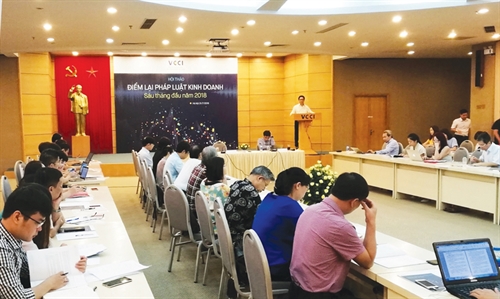 |
| On July 31, the Vietnam Chamber of Commerce and Industry holds a conference titled “Reviewing business regulations issued in the first half of 2018” Photo: Internet |
Reducing day-to-day business management measures - a way to reduce interference in business freedom
Due to the influence of management thinking from the subsidy period, there are still many regulations that directly intervene in the competition and normal business activities of enterprises without aiming to protect a specific public benefit. In this respect, the first half of 2018 has seen both positive and negative developments in efforts to reduce state intervention in business freedom and competition. Below are some examples.
On April 12, 2018, the Ministry of Industry and Trade sent dossiers of the draft decree on development and management of the distribution sector to ministries, sectors and affected subjects for opinion. This move followed the Prime Minister’s opinion ordering the Ministry of Industry and Trade to review the implementation and propose amendments to the Decrees on development and management of markets (Decree 02/2003/ND-CP and Decree 114/2009/ND-CP).
In this dossier, the Ministry of Industry and Trade proposed extending the scope of regulation of this Decree to the entire distribution system (with many types of markets such as supermarkets, trade centers, convenience store, etc.). However, the dossier fails to explain the problems of the existing distribution system or the benefits that people and enterprises may enjoy after the Decree is enacted.
VCCI, Vietnam Retailers Association and many supermarket businesses in Vietnam have raised concerns over such regulations that interfere too deeply with the right to self-determination of enterprises. On June 27, 2018, Minister of Industry and Trade Tran Tuan Anh asked to stop drafting the decree on development and management of the distribution sector.
Another issue that has attracted attention in recent years is the regulation on sales promotion ceiling. Previously, Decree 37/2006/ND-CP guiding the Commercial Law stipulated that the value of goods and services used for sales promotion must not exceed 50 percent of the value of promoted goods and services, and the price reductions must not exceed 50 percent. These regulations have hindered the freedom of many businesses, especially small businesses, new entrants, or businesses in some network industries. For these businesses, sales promotion is essential to attract customers, develop markets and increase market share. Therefore, the imposition of promotional restrictions reduce the competitive pressure between enterprises, causing the economy slow to innovate, leading to the risk of lagging behind.
Decree 81/2018/ND-CP was issued on May 22, replacing the above Decree 37, while maintaining the promotional ceiling at 50 percent, has made an exception allowing the 100 percent level when enterprises offer sales promotion under the programs launched by state agencies or during public holidays and 30 days before the Lunar New Year. This exception has provided businesses with more space to carry out sales promotion programs for their customers, but has not really given autonomy to businesses since there is still relatively large intervention of the State in sales promotion activities.
Reforming administrative procedures - improving the interface of direct relation between the State and businesses
Regarding e-finance procedures, the Ministry of Finance is currently drafting a decree replacing Decree 27/2007/ND-CP and Decree 156/2016/ND-CP on e-transactions in financial activities. This decree is expected to create more favorable conditions for enterprises to carry out administrative procedures while enhancing the effectiveness of state management and preventing financial violations. Many businesses have expressed the expectation that this decree will unify the use of e-documents, reducing enterprises’ burden of storage, duplication, printing and submission of paper documents when carrying out the administrative procedures. The draft decree even requires state agencies, when conducting inspection of enterprises, to check e-documents and to only request the enterprises to produce a written confirmation of the information system manager when unable to check e-documents.
Regarding customs procedures, Decree 59/2018/ND-CP and Circular 39/2018/TT-BTC on customs procedures have applied information technology more thoroughly. Some customs procedures related to border residents, gifts and presents of tourists which must be filled out on paper previously now can be carried out online. In case enterprises which have made customs declarations wish to change some declared contents, they now can do so through the information system.
The customs information system will also be linked to businesses providing support services such as ports, warehouses, yards and sites; businesses are willing to connect and share data on management and use raw materials and supplies imported for processing export goods in export processing zones. Customs declarants may also request the sampling of goods for inspection through the information system without having to go to the customs office. Thus, with Decree 59 and Circular 39, almost all customs procedures can be completed online.
Regarding invoices, a draft decree on invoices to replace Decree 51/2010/ND-CP is also designed to reduce the burden of businesses in the management of invoices. If Decree 51 was a revolution in allowing businesses to print invoices by themselves, this draft decree is expected to speed up the use of e-invoices and bring about many benefits, such as reducing costs of printing and storing paper invoices, reducing tax declaration procedures and reporting on invoices, reducing the risk of tax evasion and illegal purchase and sale of invoices.
Planning reform - an important solution to reducing state intervention in business
At the end of 2017, the National Assembly promulgated the Law on Planning. In the first session of 2018, the National Assembly promulgated the Law Amending a Number of Articles of the Laws Related to the Planning Law. These two laws have great implications for the business community in ensuring business freedom and reducing business risks. Two notable points of the two laws are: (1) reducing the state intervention in the market through sectoral and product planning; and (2) unifying and increasing the transparency of spatial planning.
Previously, in order to do business, enterprises would have to prepare investment projects conformable with many master plans such as land use master plan, construction master plan and local socio-economic development master plan. When these master plans are contradictory, the enterprises’ business activities are very risky.
At present, the Planning Law on and Law Amending a Number of Articles of the Laws relating to the Planning Law have addressed this situation. Accordingly, the general master plans now include regional, provincial, urban and rural ones and there are only land use master plans at district level, which helps remove overlaps between these two types of master plans.
Judicial reform - ensuring a credible business environment
In May and June 2018, the justice sector introduced two important legal documents to help solve problems related to bad debt settlement and enforcement of bankruptcy decisions, including Resolution 03 of the Judicial Council of the Supreme People’s Court and Joint Circular 07 of the Ministry of Justice, Supreme People’s Procuracy and Supreme People’s Court. These problems are called “blood clots” of the economy over the years because there are no clear guidelines from policymakers. Issues related to the handover of collaterals, simplified procedures, procedural mandate, inheritance of rights and obligations in legal proceedings, valuation, re-valuation and liquidation of assets, delivery and division of assets upon enforcement of bankruptcy settlement judgments have also been guided. However, some lawyers still hold that these guidelines remain general, failing to make real changes in the settlement of bad debts and bankruptcy.
Mr. Dau Anh Tuan, head of VCCI’s Legal Department, said that although the ministries’ plans on reviewing and reducing business conditions reached quantitative targets, the quality of the reduction remains questionable. In particular, some proposals to reduce or simplify business conditions are just a reorganization of business conditions without any change in their content, or just lowering the conditions. In addition, many unreasonable business conditions in the laws have not been reviewed in detail.
Tuan suggested in the coming time the ministries should continue reviewing and reducing business conditions in both decrees and laws on the basis of Article 7 of the 2014 Investment Law (i.e., business conditions are only intended to ensure public interest). They should also avoid converting business conditions from one form to another.- (VLLF)

